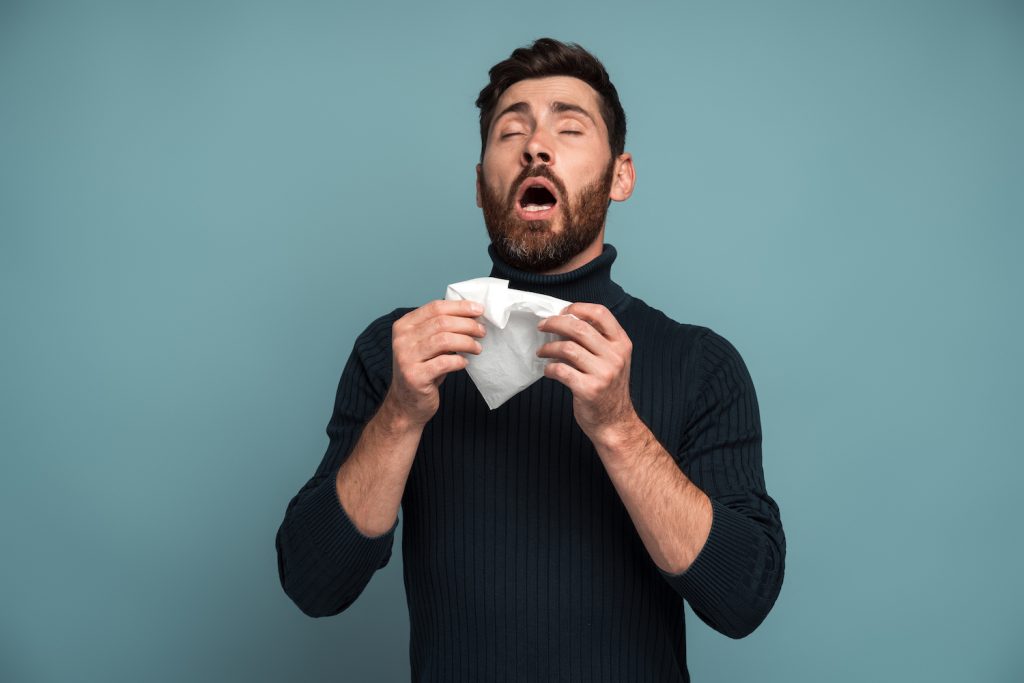
Seasonal allergies, commonly known as hay fever, cause discomfort and disrupt the daily life of millions worldwide. As the seasons change, so do the allergens in the air, leading to symptoms ranging from sneezing and congestion to itchy eyes and throat. Peak allergy season typically occurs during spring and early summer when pollen counts are at their highest, although some regions may experience high pollen levels at different times.
Seasonal allergies are immune system responses to airborne substances that are typically harmless. These reactions are caused by the body’s defence mechanism mistaking these substances for dangerous invaders. The importance of identifying the best treatment lies in alleviating symptoms and enhancing the quality of life, enabling individuals to enjoy the changing seasons without the dread of allergic reactions.
Seasonal allergies, while widespread, are primarily triggered by a few common allergens that vary depending on the time of year:
Identifying the specific allergen(s) causing your symptoms can be challenging. Each allergen has its peak season, and symptoms can overlap, making it essential to pay attention to when your symptoms occur and under what conditions they get worse.
Seasonal allergy symptoms often mimic a common cold, but they can last for several weeks or as long as the allergen is present:
For individuals with conditions like asthma and eczema, seasonal allergies can cause symptoms to worsen, leading to increased discomfort and potentially more severe health complications.
The root cause of seasonal allergies lies in the body’s immune response. When a person with allergies comes into contact with an allergen, their immune system mistakenly identifies it as a harmful substance and releases antibodies. These antibodies attack the allergens, leading to the release of chemicals called histamines into the blood. Histamines are responsible for the uncomfortable symptoms that are all too familiar to those with allergies.
The severity of symptoms can vary significantly from person to person. It can be influenced by several factors, including the type of allergen, the amount of exposure, and the individual’s immune system. Some people may experience mild irritation, while others may find their daily activities severely impacted.
Managing and treating seasonal allergies effectively combines lifestyle adjustments, over-the-counter (OTC) medications, and possibly prescription treatments. In the study of immunology, the goal is to reduce symptoms by minimising exposure to allergens and using medications to control the allergic response.
Over-the-counter medications like cetirizine tablets, chlorphenamine, and loratadine counteract the effects of histamine, reducing sneezing, itching, and runny nose.
Allergy medications like prescription antihistamines are given if over-the-counter versions are not tackling the problem. These stronger formulations, like Desloratadine, Fexofenadine and Levocetirizine, provide an enhanced level of relief for more severe allergic reactions. Prescription antihistamines can offer longer-lasting effects and are often formulated to minimise drowsiness, allowing individuals to continue their daily activities without the sedative effects commonly associated with first-generation antihistamines.
Nasal sprays such as fluticasone are decongestants available in lower doses over the counter and offer a convenient and effective way to manage the nasal symptoms of seasonal allergies. These sprays deliver a fine mist of medication directly to the inflamed tissues in the nasal passages, reducing swelling and alleviating symptoms like congestion, sneezing, and itching. Fluticasone and similar corticosteroid sprays help suppress the local immune response in the nasal passages, decreasing the production of substances that cause inflammation and allergy symptoms.
Budesonide and mometasone are prescription-level sprays that are highly effective in controlling inflammation and treating the nasal symptoms of seasonal allergies. Their formulation allows for targeted action within the nasal passages, minimising systemic absorption and making them safe for long-term use by most people.
Struggling with seasonal allergies? Click2Pharmacy’s allergy treatment and hayfever treatment clinic offers personalised solutions tailored to your needs. From expert advice to a wide range of treatment options, including over-the-counter remedies and prescription medications, we’re here to help you easily navigate allergy season. Take the first step towards better allergy management by visiting Click2Pharmacy online for a convenient consultation, and let us guide you to the relief you’ve been seeking.







